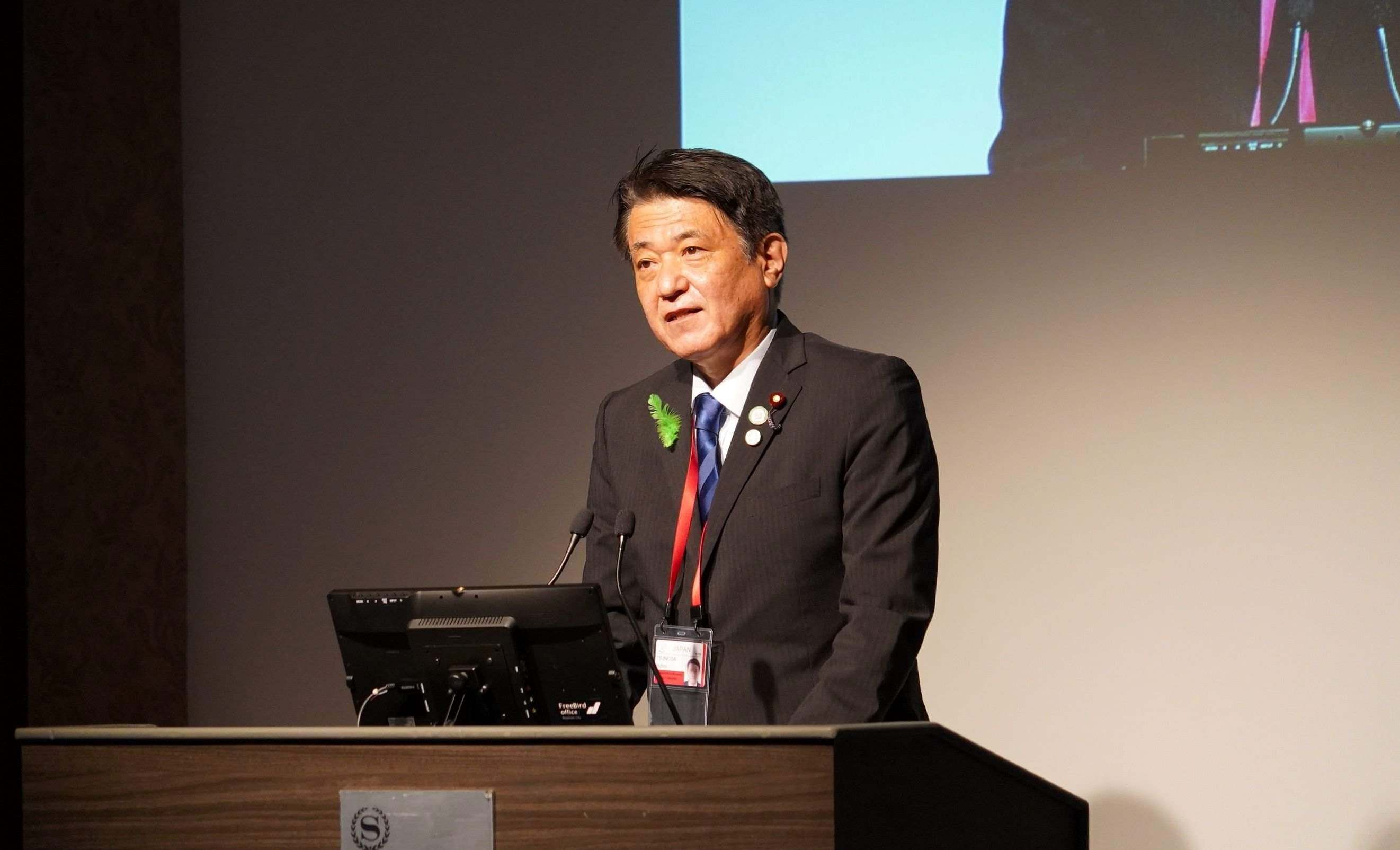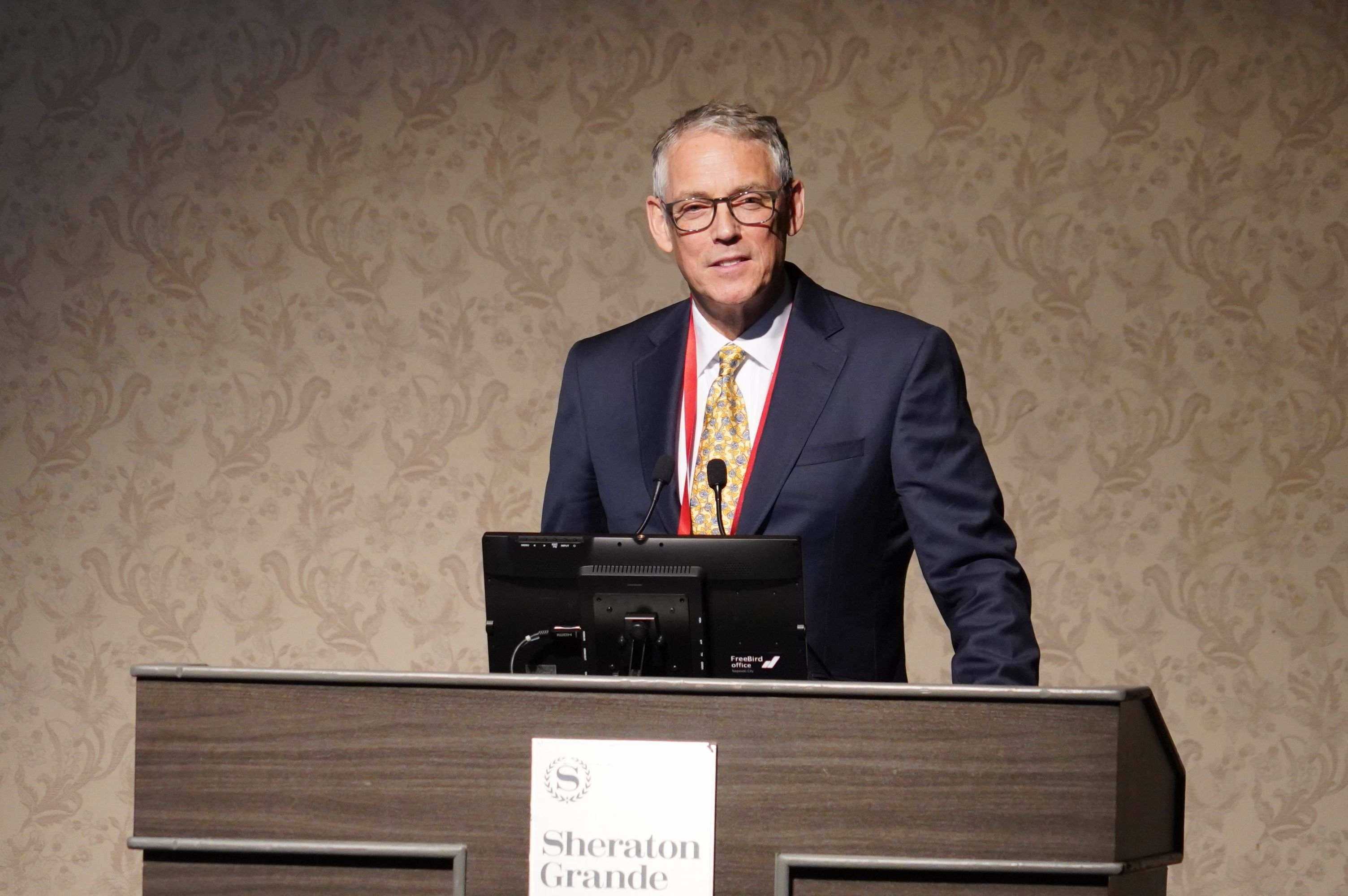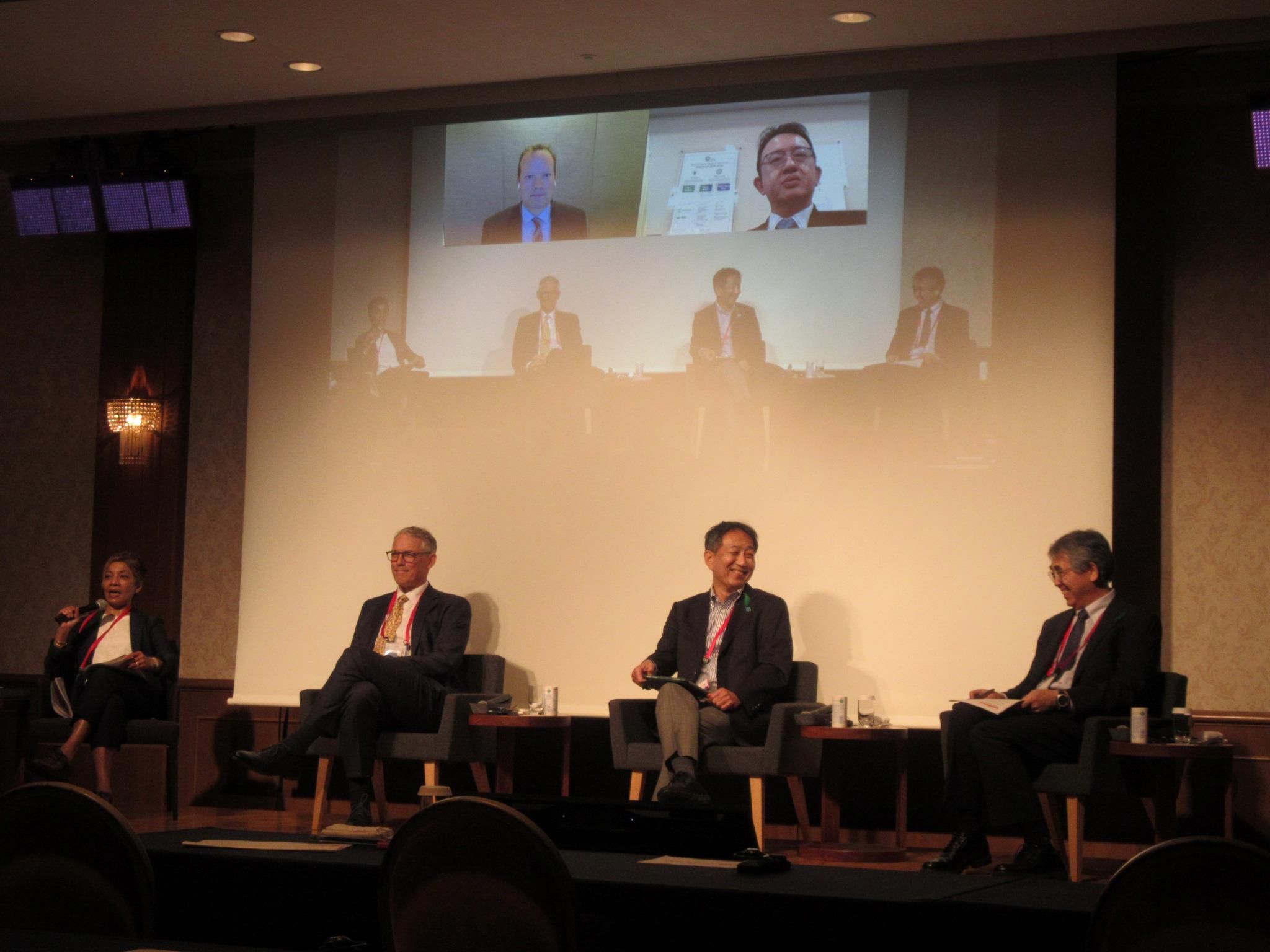Summary of Side Event at G7 Miyazaki Agriculture Ministers' Meeting
On Friday, April 21, the day before the G7 Miyazaki Agriculture Ministers’ Meeting, Session1 of the side events seminars hosted by the Ministry of Agriculture, Forestry and Fisheries, took place under the title “Toward Net zero and Circular economy with Sustainable Wood Use.”
1. Date, time and place
Date: April 21, 2023
Place: Seagaia Convention Hall (Miyazaki City)
Format: Hybrid meeting
2. Summary of G7 Miyazaki Agriculture Ministers' Meeting Side Event Session 1
(1) Background/Purpose
Sustainably managed forests absorb carbon dioxide and store carbon in the process of their growth, while by using wood legally harvested from such forests for buildings and other purposes, carbon will be stored over a long term. In addition, since wood consumes less energy during processing compared to other building materials such as steel and concrete, replacing the latter with wood can also contribute to reducing emissions.
The sustainable use of wood, a renewable resource produced through legal and sustainable forest management, thus greatly serves for the reduction of carbon dioxide emissions and the realization of a circular economy. For this reason, expectations for the potential of reducing carbon dioxide emissions by promoting wooden buildings are growing.
This session aims to provide an opportunity for promoting policy dialogue, research, and innovation on legal and sustainable timber use based on sustainable forest management, through collaboration among national governments, international organizations, the private sector, and research institutes.
(2) Opening remarks
On behalf of the Government of Japan, Mr. Tsunoda, Parliamentary Vice-Minister for Agriculture, Forestry and Fisheries, delivered his opening remarks. He referred to the contribution of the circular use of forest resources to climate change mitigation and formulation of a sustainable society, as well as the importance of confirming legality of timber as a prerequisite for this.

(3) Keynote speech by Mr. Alan Organschi
Mr. Alan Organschi, a senior member of the faculty at the Yale School of Architecture, Principal and partner at Gray Organschi Architecture, and Director of the Innovation Lab at the Bauhaus Earth, gave a keynote address entitled “A Role for Wood Products in Climate Restoration.”
He posed the potential for an ecological symbiosis between forests and human society’s building activities, primarily construction materials and methods, through sustainable wood use. He pointed out that, it will be possible to avoid significant greenhouse gas emissions by using wood for urban building instead of mineral-based materials, and that, thereby cities can serve as massive carbon banks. He further sought the synergy brought by a powerful system of biogenic carbon sequestration and storage that would incentivize forest conservation and restoration.

(4) Presentations of other panelists
Discussions among the panelists were moderated by Ms. Sheam Satkuru, Executive Director of International Tropical Timber Organization (ITTO). Four panelists, representing the Canadian provincial government, international organization, research institute, and the private sector of a timber producing country respectively, each introduced their efforts and views on ways and means to strengthen the function of forests and promote decarbonization, as well as to build a new circular economy.
The main points of the panelists’ presentations are as follows. Apart from these panelists, Mr. Jarrett Hutchinson, Executive Director of the Office of Mass Timber Implementation, Province of British Colombia of Canada, and Mr. Hiroto Mitsugi, Special Advisor of the Food and Agriculture Organization of the United Nations (FAO), also joined the Q&A session.

◆Mr. Jagrup Brar, Minister of State for Trade, Ministry of jobs, Economic Development and Innovation for British Colombia, Canada:
The Mass Timber Action plan serves as the central economic policy of British Colombia, developed in conjunction with the local indigenous communities. Making use of the province’s rich forest resources, the Plan is designed to improve competitiveness and add value to the forestry sector by promoting the use of mass timber, a large format engineered structural wood components applicable in mid- to high-rise urban building construction. The provincial government seeks to make British Colombia a worldwide hub for mass timber, with the aim of job creation, economic growth, and enterprise innovation.
◆Ms. Maria Semedo, Deputy Director-General of FAO:
Continued and joint actions by global society to scale up the production and use of legal and sustainable wood is needed, in order to achieve our common goal to bring about a net-zero and circular economy, especially in face of worldwide growing demands. FAO is carrying out the joint initiative “Sustainable Wood for Sustainable Future (SW4SW)” with its partner organizations including ITTO. FAO wishes to continue its efforts to improve wood value chains and forest governance, as well as to promote integrated measures for system-wide policy and investment, with a view to foster the sustainable management of forests.
◆Dr. Nakashizuka Tohru, Director General of the Forestry and Forest Products Research Institute:
Sustainable forest management and wood use are closely linked to the sustainability of our society. They are expected to be the key to provide low-cost mitigation measures synergetic to biodiversity, and materials for wooden building constructions or new materials to replace fossil-fuel oriented materials. Furthermore, forests and timber bring about Nature-based Solutions to address the multiple socioeconomic challenges our world currently faces, including prevention of natural disaster (such as forest reserves planted along the coast), creation of buffer zones between human society and wildlife, or alleviation of human stress.
◆Mr. Tan Ting Wai, Acting COO of Malaysian Timber Council:
The private sector plays a significant role in sustainable wood use. To achieve a sustainable wood value chain, it is effective to promote certification schemes for sustainable forest management. This is especially important in the sense that the efforts for forest governance in producing countries may be duly appreciated in international markets and be given a better pricing, through which economic incentives to ensure sustainable forest management become available.
At the end of the panel discussion, the moderator, Ms. Satkuru of ITTO, commented that, the participation of the timber producing countries is essential in order to promote legal and sustainable wood use that contributes to climate change mitigation and regional economic development.
The session served to reinforce and demonstrate our mutual understanding of the importance of sustainable wood use in the creation of a circular economy and its essential role in meeting our net-zero emissions targets, which will entail collaborative effort among G7 and non-G7 member governments, international organizations, academic institutions, and the private sector.
The summary of the session was also reported to the G7 Agriculture Ministers at their meeting on the next day (April 22), by Mr. Organschi.
Attached file
Programs of Side event seminars(PDF:562KB)お問合せ先
林政部木材利用課木材貿易対策室
ダイヤルイン:03-3502-8063




